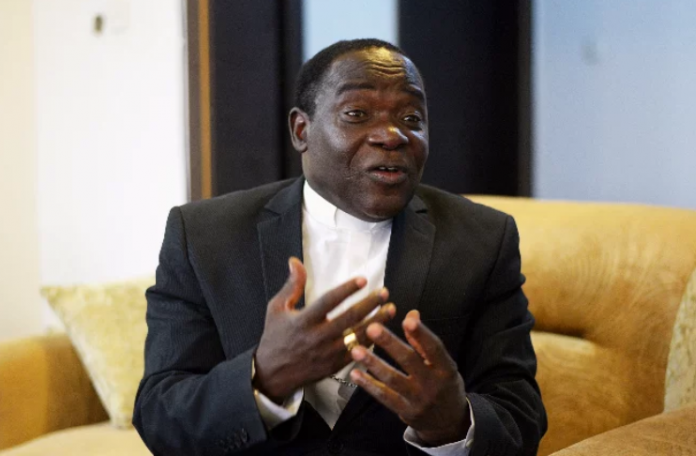The Catholic Bishop of Sokoto Diocese, Most Rev. Matthew Hasan Kukah, has said that Nigeria’s problems do not have solution.
However, he said there were “coping mechanisms” that other countries also adopt to manage their own problems.
The respected cleric made this known in response to a question on whether restructuring was the solution to the nation’s problems.
Kukah said, “Anybody pretending that restructuring is the solution to our problems… it isn’t, because there are no solutions.
“They are coping mechanisms that you can design.
“People focus on power, but the irony now, if we don’t know, is that somebody has written a fine book, we are seeing the end of power in the way and manner that we understand it.
“Here in Nigeria, people think of power and they think about it in the relation to the ability to give a big cheque, the ability to sign a contract, ability to people in NNPC, ability to give oil wells.
“This is absolute nonsense because it doesn’t carry with it the moral authority. The most important thing, of course, is that… ok, look at the day Mark Zuckerberg went to Congress, it affected the stock market.
“Now, the mystery, the mistake of power no longer exists; if you talk about restructuring, again, we are captives of vocabulary, and by the time you translate it, then it becomes a problem.”
Read Also: We Arrested Ex-Gov Orji’s Son, Found N100m Range Rover – EFCC
However, he stated that the North has a lot to benefit from restructuring of the country as it is easily the nation’s poorest region.
The cleric said the failure to properly manage widespread poverty led to societal problems including the Boko Haram insurgency.
Kukah said, “You know here in Nigeria, when you throw a concept after some time it becomes a weapon. Interestingly, people think that the north, or maybe their body language suggests that they are not interested in restructuring.
“But in reality, the beneficiaries of restructuring are the northerners. How? Because as the chief of army staff and everybody has accepted, Boko Haram is a product of poverty.
“The poverty level of the southwest are hovering between 13 to 17 percent. What is Zamfara today? It is a cesspit of violence; the poverty levels whether in Zamfara, or Sokoto, or Katsina or Kebbi, the average state in northern Nigeria is hovering between 70 and 80 percent.
“It is actually in our interest to understand that the one thing we have monopolised in Nigeria is poverty, because if being in power were enough, the northerners have been in power more than anybody.
“The power you are talking about is the power of ideas, and you know a lot of things have been so demystified, and I give you an example. 9/11, the destruction of the twin towers, it cost al-Qaeda $500,000.
“From reconstructing the twin towers and finding Osama Bin Laden, it ost the Americans $3.3 trillion. So the world is changing; it is now a world of ideas, it is no longer a world where you are monopolising power because of region or religion”.




 Premier League
Premier League